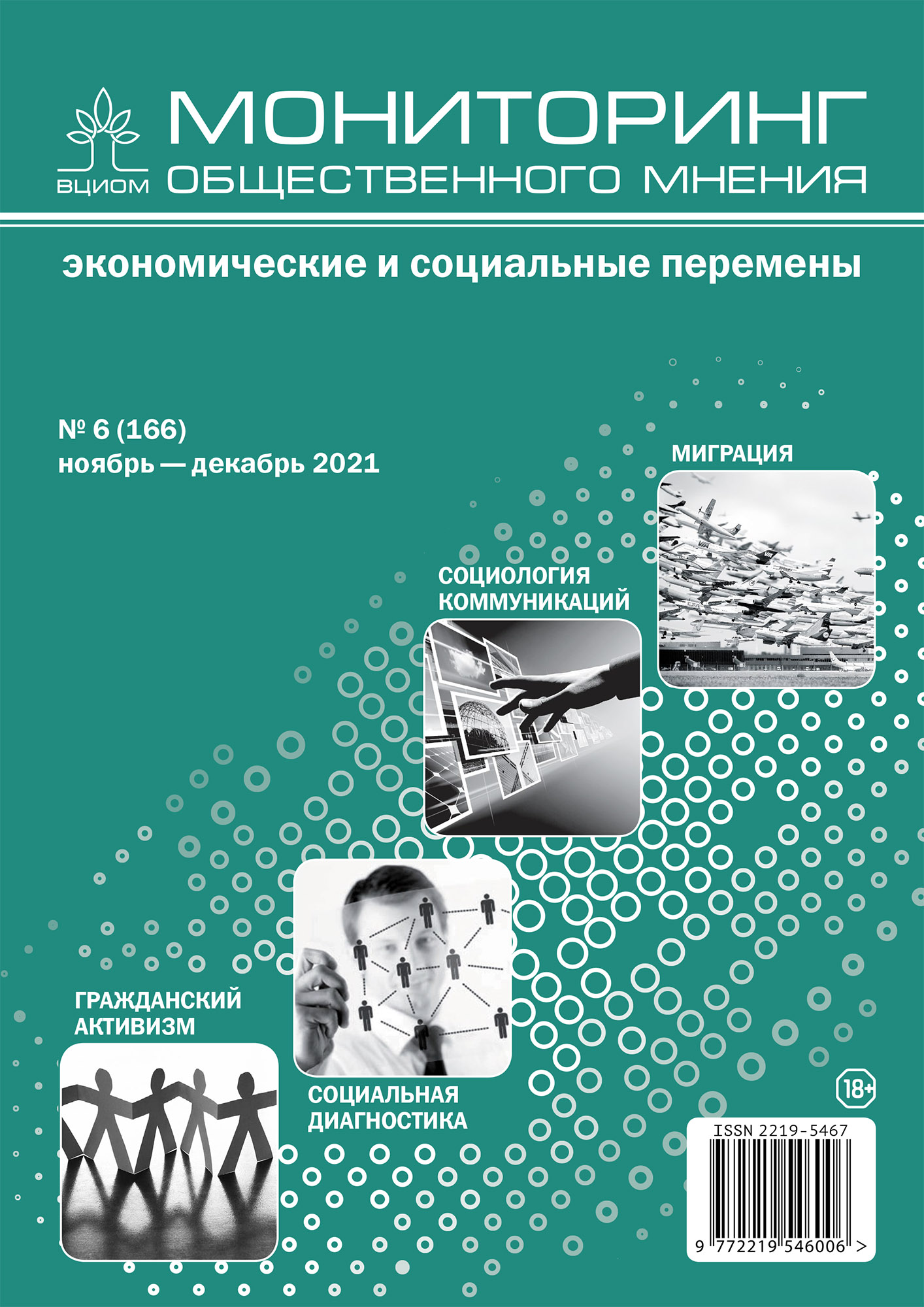Кто верит в теории заговора? Факторы склонности к конспирологическому мышлению в России, Казахстане и Украине
DOI:
https://doi.org/10.14515/monitoring.2021.6.1889Ключевые слова:
конспирология, теории заговора, медиапотребление, генерализированное доверие, лояльность властиАннотация
Конспирологическое мышление имеет значительное число негативных эффектов: снижает политическое участие и доверие к науке, ухудшает отношение к правительству, препятствует благоприятному и безопасному для здоровья поведению и т.д. Особенно остро проблема распространения теорий заговора встала в контексте пандемии COVID-19. По этой причине важно понимать, кто именно оказывается наиболее подвержен воздействию подобного контента.
В данном исследовании на материалах трех стран — России, Казахстана и Украины — проанализированы факторы, влияющие на склонность к конспирологическому мышлению. Сбор данных проводился методом опроса пользователей социальных сетей Facebook и «ВКонтакте» в период с 13 апреля по 19 мая 2020 г. Сделан вывод, что наиболее подвержены теориям заговора люди с низкими уровнями образования, генерализированного доверия и одобрения действующей власти. Кроме того, большую предрасположенность к конспирологическому мышлению продемонстрировали более старшие респонденты. Влияние пола значимо в Украине и Казахстане: в этих странах мужчины менее подвержены теориям заговора. Интересно, что конспирологические убеждения более характерны для людей, получающих информацию преимущественно по телевидению; влияние потребления новостей из блогов и агрегаторов оказалось обратным.
Благодарность. Статья приготовлена при поддержке Российского научного фонда (РНФ), грант № 19-18-00206.
Загрузки
Опубликован
Как цитировать
Выпуск
Раздел
Лицензия
Copyright (c) 2021 Мониторинг общественного мнения: экономические и социальные перемены

Это произведение доступно по лицензии Creative Commons «Attribution-NonCommercial-ShareAlike» («Атрибуция — Некоммерческое использование — На тех же условиях») 4.0 Всемирная.






